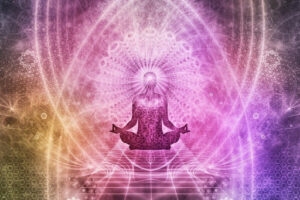Family and Unity are not just domestic ideals. They are the foundation of how we live in harmony within larger communities.
Community is a fundamental aspect of religious life in any tradition, with family—the first micro-community we inhabit—serving as a scaffolding for broader community systems. The health of a community heavily relies on the strength of its members’ family dynamics, as families shape beliefs that ripple outward into society. The family unit is where we first learn to love and be loved. Without learning these essential skills, it becomes challenging to love our neighbours, let alone those who are different from us. This connection is explicitly stated in the doctrines and scriptures on unity in the family of many religions, which is why God is often referred to as ‘The Father’ or ‘The Mother,’ and strangers are described as our brothers and sisters.Family and community shape and reflect one another.
What Defines Unity In A Family Beyond Biology?
But what constitutes a family? Is it just mother, father, and grandparents? Does it not include the person who cooks for you daily or your classmate who sat next to you for ten years? In today’s rapidly changing world, where structures and norms evolve faster than the seasons, the concept of family unity and togetherness has expanded to include surrogates. Instead of the traditional mother-father paradigm, there could be two fathers, a single parent, a grandparent, or a mentor. The possibilities are endless, yet their nurturing roles remain the same—providing unconditional love and fostering the gradual development of all faculties.
Scriptures On Unity In The Family Across Cultures
Even before globalization, many religions extended the concept of unity in the family beyond those we can see and know. In Chinese traditions like Taoism and Confucianism, this extends to reverence for departed ancestors. Confucianism emphasizes filial piety, while the Baha’i faith views the world as one family, promoting equality and family unity within the worshipping community.
Symbol of Family Unity in Global Cultures
Various cultures share deep-rooted symbols of family unity.
- In Japan, Okinawans live by the principle of ichariba chode, meaning “treat everyone like a brother, even if you’ve never met them before.”
- Hindu Rishis advocated the philosophy of Vasudhaiva Kutumbakam, meaning “the whole world is your family.”
- In India, it is common for strangers to address you as brother, uncle, aunt, sister, son, or daughter.
All religions emphasize that the ultimate expression of love is to see the entire world as your family, treating even the most remote stranger—be it a crow, a monkey, a tree, or a piece of earth—as your closest kin. This demonstrates the power of unity in the family, extending to all forms of life.
Religious Scriptures on Family Togetherness
Many religions talk about family unity. The Torah, Quran, Bible, Gita, – all scriptures about family togetherness are timeless and universal. Scriptures use sacred words not just to instruct but to unite hearts. These texts offer us guidance on how to live and love.
Verses About Family Unity In Judaism
- “Honor your father and your mother, so that you may live long in the land the Lord your God is giving you.” —Hebrew Bible (Exodus 20:12)
- “Start children off on the way they should go, and even when they are old they will not turn from it.” —Hebrew Bible (Proverbs 22:6)
Islam : Qur’an Verses About Family Unity
- “Your Lord has commanded that you should worship none but Him, and that you be kind to your parents. If either or both of them reach old age with you, say no word that shows impatience with them, and do not be harsh with them, but speak to them respectfully and lower your wing in humility towards them in kindness and say, ‘Lord, have mercy on them, just as they cared for me when I was little.’ Your Lord knows best what is in your heart.” —Qur’an (17:23-25)
- “Hold fast to God’s rope all together; do not split into factions. Remember God’s favor to you: you were enemies, and then He brought your hearts together, and you became brothers by His grace. Be a community that calls for what is good, urges what is right, and forbids what is wrong: those who do this are the successful ones.” —Qur’an (3:103-04)
Christianity: Bible Verses on Unity in the Family
- “I will be a Father to you, and you will be my sons and daughters, says the Lord Almighty.” —The New Testament (2 Corinthians 6:18)
- “Anyone who does not provide for their relatives, and especially for their own household, has denied the faith and is worse than an unbeliever.” —The New Testament (1 Timothy 5:8)
Scriptures About Family Togetherness in Hinduism
- “When a family declines, ancient traditions are destroyed. With them are lost the spiritual foundations for life, and the family loses its sense of unity. Social chaos is hell for the family and for those who have destroyed the family as well. It disrupts the process of spiritual evolution begun by our ancestors. The timeless spiritual foundations of family and society would be destroyed by these terrible deeds, which violate the unity of life.” —The Bhagavad Gita
- “Discrimination saying ‘this one is a relative; this other one is a stranger’ is for the mean-minded. For those who’re known as magnanimous, the entire world constitutes but a family.” —Mahōpaniṣad
Family Unity And Togetherness In Baha’i
- “A family is a nation in miniature. Simply enlarge the circle of the household, and you have the nation. Enlarge the circle of nations, and you have all humanity. The conditions surrounding the family surround the nation. The happenings in the family are the happenings in the life of the nation. So it is in the great family of nations, for nations are but an aggregate of families. Therefore, as strife and dissension destroy a family and prevent its progress, so nations are destroyed and advancement hindered.” —‘Abdu’l-Bahá
Family Unity Quotes in Taoism
- “Cultivated in yourself virtue becomes real. Cultivated in your family virtue grows. Cultivated in your village virtue multiplies. Cultivated in your state virtue abounds. Cultivated in your world virtue is everywhere. Thus view others through yourself. View families through your family. View villages through your village. View states through your state. View other worlds through your world. How do you know what other worlds are like? Through this one.” —Tao Te Ching (ch 54)
Buddhism: Sangha as a Symbol of Family Unity
- “The sangha is a community where there should be harmony, peace, and understanding. That is something created by our daily life together. If love is there in the community, if we’ve been nourished by the harmony in the community, then we will never move away from love.” —Thich Nhat Hanh
Thoughts on Family Unity From Modern Philosophy and Theology
- “Religion creates community, community creates altruism, and altruism turns us away from self and toward the common good.” —Rabbi Jonathan Sacks
- “The associations with flourishing are much stronger for communal religious participation than for spiritual-religious identity or for private practices. It may be the confluence of the religious values and practices, reinforced by social ties and norms, that give religious communities their powerful effects on so many aspects of human flourishing.” —Tyler J. VanderWeele
These thoughts reflect how the family, as the first community we experience, plays a central role in shaping the values that support aflourishing life.
Why Unity In Family Is Important
In every religion and culture, the scripture about family togetherness remains a pillar of wisdom that continues to shape human conduct. The concept of family unity and togetherness is a modern necessity. When families function with mutual respect, love and shared values, societies strengthen.
Strong family ties are a key contributor to achieving beyond happiness and life satisfaction. Love begins at home, and its ripple effect changes the world.
FAQs on Family Unity
What does family unity mean?
Family unity means living with mutual love, shared responsibility, and emotional support. It goes beyond blood relations. A united family stands together through care, trust, and everyday connection. This includes traditional homes and chosen families who commit to supporting each other fully.
Why is family unity important?
Family unity builds emotional strength, social stability, and long-term well-being. Research shows children in supportive families are more resilient in school and relationships[1]. Adults in close-knit families handle stress better, and elderly parents with active family ties report fewer signs of loneliness. Faith traditions also teach that love must begin in the home before it can reach the world.
What does the Bible say about unity in the family?
Here are 3 bible verses on unity in the family that focus on peace, harmony, and love in the home:
- Psalm 133:1 – “How good and pleasant it is when God’s people live together in unity.”
- Psalm 128:3 – “Your wife will be like a fruitful vine… your children like olive shoots around your table.”
- Psalm 127:1 – “Unless the Lord builds the house, the builders labor in vain.”
References:
[1] https://pmc.ncbi.nlm.nih.gov/articles/PMC8818094/
About the author:
Akhilesh Gupta is the founder of the UEF Foundation and a Fellow of the Harvard Advanced Leadership Initiative. He previously served as senior managing director at Blackstone and held leadership roles at Reliance Industries and Hindustan Unilever.
Related reads
False narratives | Charioteer | Religious wear | Cosmic Tree | Sacred music|Fire as a symbol
For more reflections on personal growth, wisdom and happiness, browse through our website.





